Sign up to receive news and special offers from Shambhala Publications.

Or visit us online to sign up at shambhala.com/eshambhala.
 A PLEA FOR THE ANIMALS
A PLEA FOR THE ANIMALS
THE MORAL, PHILOSOPHICAL, AND EVOLUTIONARY IMPERATIVE TO TREAT ALL BEINGS WITH COMPASSION
MATTHIEU RICARD
Translated by Sherab Chdzin Kohn

SHAMBHALA BOULDER 2016
Shambhala Publications, Inc.
4720 Walnut Street
Boulder, Colorado 80301
www.shambhala.com
2014 by Matthieu Ricard
Translation 2016 by Shambhala Publications, Inc.
Previously published in French as Plaidoyer pour les animaux:
Vers une bienveillance pour tous.
All rights reserved. No part of this book may be reproduced in any form or by any means, electronic or mechanical, including photocopying, recording, or by any information storage and retrieval system, without permission in writing from the publisher.
Jacket design by Kathleen Lynch/Black Kat Design
Jacket illustrations istockphoto
Designed by Lance Hidy
LIBRARY OF CONGRESS CATALOGING-IN-PUBLICATION DATA
Names: Ricard, Matthieu, author.
Title: A plea for the animals: the moral, philosophical, and evolutionary imperative to treat all beings with compassion / Matthieu Ricard.
Other titles: Plaidoyer pour les animaux. English
Description: First English edition. | Boulder: Shambhala, 2016. | Previously published in French [in 2014] as Plaidoyer pour les animaux: Vers un bienveillance pour tous. | Includes bibliographical references and index.
Identifiers: LCCN 2016003252 | EISBN 9780834840546 | ISBN 9781611803051 (hardcover: alk. paper)
Subjects: LCsH: Animal rights. | Compassion.
Classification: LCC HV4708 .R5313 2016 | DDC 179/.3dc23
LC record available at https://lccn.loc.gov/2016003252
TO PEMA WANGYAL RINPOCHE
AND JIGME KHYENTSE RINPOCHE,
TIRELESS DEFENDERS OF THE
ANIMAL CAUSE, WHO HAVE
BY NOW SAVED THE LIVES OF
MORE THAN THIRTY MILLION
ANIMALS DESTINED FOR
HUMAN CONSUMPTION
TO JANE GOODALL AND ALL
THOSE WHO, INDIVIDUALLY
OR AS PART OF GROUPS,
HAVE DEDICATED THEMSELVES
TO SPEAKING OUT IN THE
NAME OF ANIMALS AND
TO PROTECTING THEM

Animals are my friends... and I dont eat my friends.
George Bernard Shaw
A person doesnt have two hearts, one for animals and another for humans. One either has a heart or one doesnt.
Alphonse de Lamartine
Some people are born with a natural tendency to be compassionate. From an early age, they show spontaneous kindness toward those around them, including animals. This was not the case for me. I was born into a Breton family, and until I was fourteen years old I often used to go fishing. I also remember when I was very young my friends from the local school and I once grilled ants by focusing the suns rays on them with a magnifying glass. Looking back, I am ashamed of this, but it upsets me even more that such behavior struck me as normal. When I was five, my father took me to see the bullfights in Mexico. It was a celebration. The music was exciting. Everybody seemed to feel this was a great occasion, that all of this was wonderful. Why didnt I leave in tears? Was it a lack of compassion, of education, of imagination?
It never occurred to me to put myself in the place of the fish, the ant, or the bull. Was I just a hard-hearted guy? Or was it simply that I had never thought about these matters, that my eyes had yet to be opened?
It took me some time to come to a kind of awakening. I lived for a few years with one of my grandmothers, who had all the qualities one could wish for in a grandmother. Like a lot of people I knew who in other ways were good parents and good children, she was very fond of fishing. When we were on vacation, she often spent her afternoons fishing on the shores of a lake or in the harbor at Le Croisic in the company of elderly Breton ladies who still wore the traditional white lace Bigouden headdress. How could these people possibly have wanted to inflict pain on anything or anybody? Hooked at the end of the line, the little wriggling fish being pulled out of the water glittered in the light. Of course, there was the painful moment when they suffocated in the wicker basket and their eyes glazed over, but I looked the other way.
A few years later, when I was fourteen, a girlfriend asked me point-blank: Really? You go fishing!? Her tone of voice and the look she gave mestunned and disapproving at the same timewere eloquent enough.
You go fishing? Suddenly I saw that whole scene in a different light: a fish pulled from its vital element by an iron hook stuck through its mouth, then suffocating in the air the way we drown in water. In order to lure the fish to the hook, did I not also skewer a worm as living bait, thus sacrificing one life to destroy another? How could I have let my mind block out this reality of suffering for such a long time? Sickened to the heart by these thoughts, I gave up fishing on the spot.
No doubt, when compared to the drastic events that wreck the lives of so many human beings in the world, my preoccupation with those little fish might seem ludicrous. But for me this was a turning point.
At the age of twenty I had the great good fortune of meeting Tibetan spiritual masters, who from that time on have inspired every moment of my existence. The central point of their teachings has been the royal way of love and universal compassion.
Although for a long time I had not been able to put myself in others places, training with the masters, little by little I learned altruistic love, doing the best I could to open myselfto open my mind and heartto the plights of others. I trained myself in compassion, and I reflected on the human condition and the condition of animals as well. Without a doubt, I still have a long way to go, and I will continue to do my best to make progress in my understanding of the teachings I have received.
It is far from my intention, as you will have gathered, to rebuke people who in one way or another cause animals to suffer. They often do it without thinking, as I myself used to do. It truly is difficult to make the connection between the latest consumer items, including food and medicines that sometimes save our lives, and the suffering that is usually involved in their fabrication. Cultural traditions also play a major role in our perceptions of animals, our companions on this planet. Some societies have developed collective patterns of thought that encourage the view that animals exist to serve humans, but the outlook of other traditions has long been that every being, human or nonhuman, must be respected.
This book is a logical and necessary follow-up to my book Altruism: The Power of Compassion to Change Yourself and the World. Its purpose is clearly to demonstrate the justifications and the moral imperative for extending our altruism to all sentient beings, without any quantitative or qualitative limitations. Certainly there is so much suffering among human beings throughout the world, one could spend ones whole life just alleviating a tiny fraction of it. Despite that, however, concern for the fate of the 7.7 million other species of animals that inhabit this planet is neither unrealistic nor misguided, because most of the time there is no need to choose between the well-being of humans and the well-being of animals. We live in an essentially interdependent world where the fate of each being, of whatever kind, is intimately linked to that of all the others. So what we are suggesting here is not concern for animals
Next page
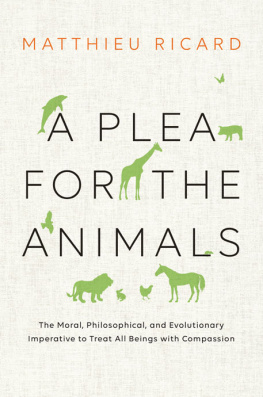

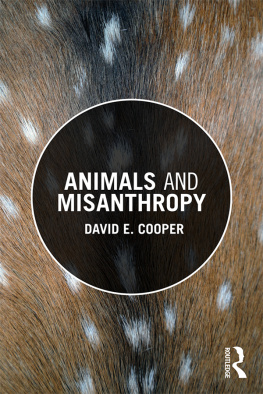
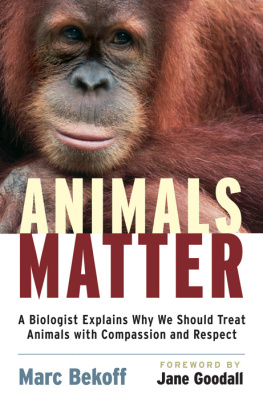
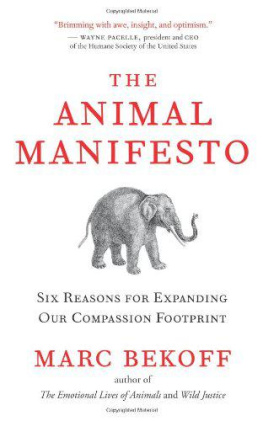
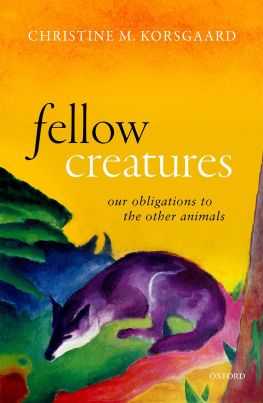
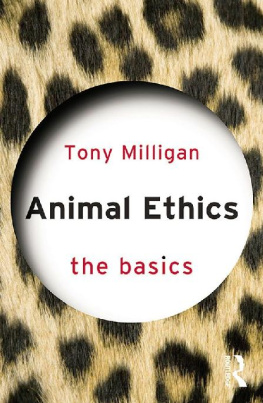
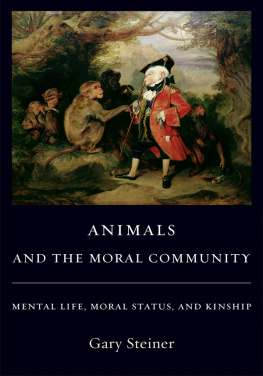
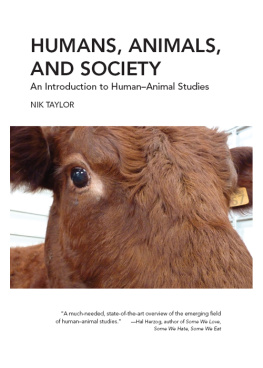

 A PLEA FOR THE ANIMALS
A PLEA FOR THE ANIMALS
